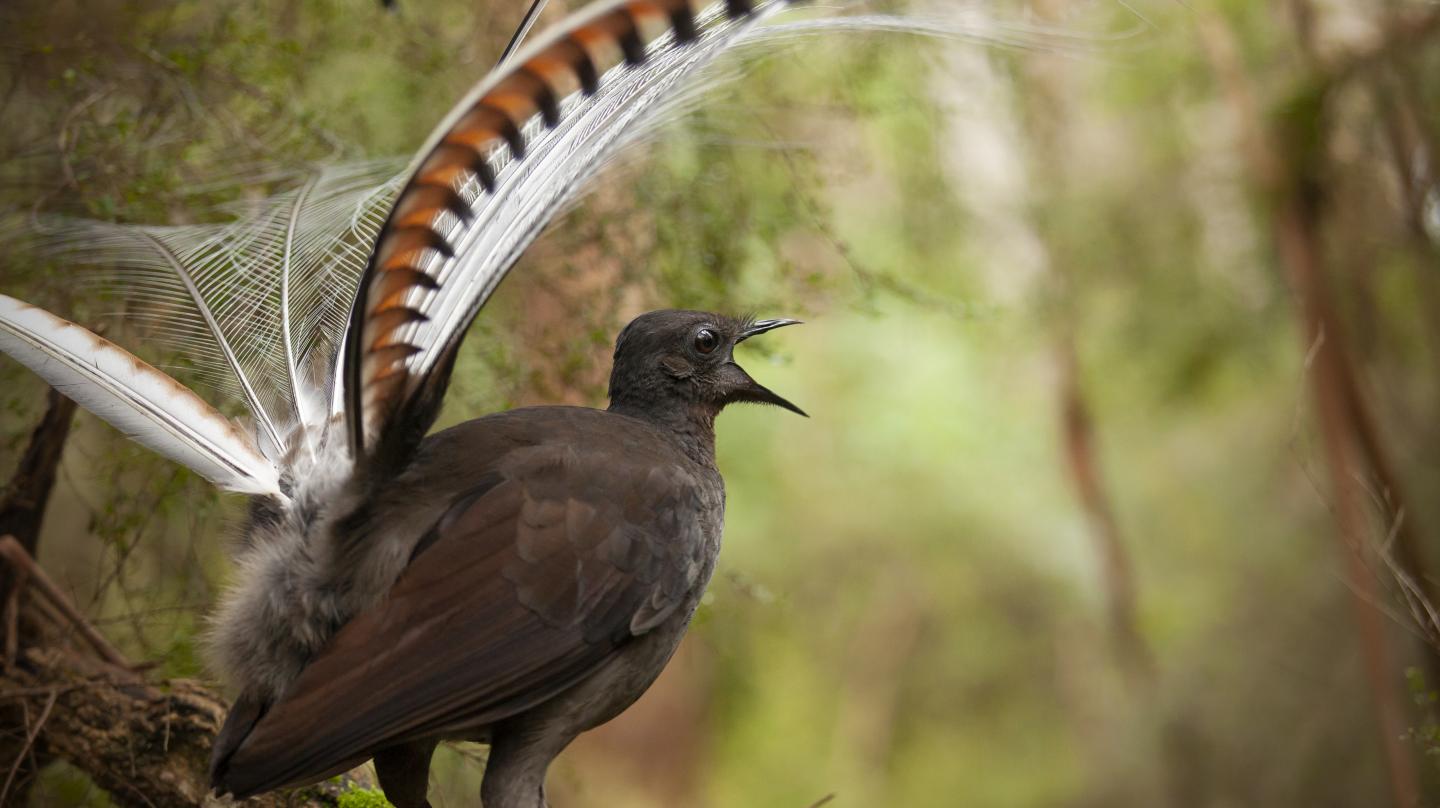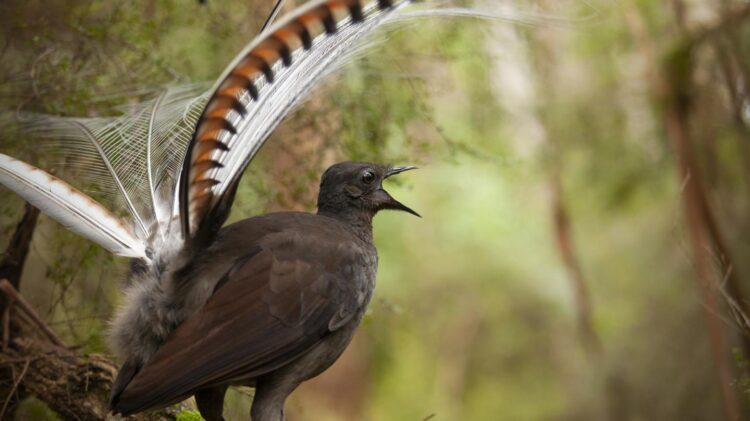Researchers discover unexpected role for mimicry

Credit: Alex Maisey, University of Wollongong
Ithaca, NY–Famous for their uncanny ability to imitate other birds and even mechanical devices, researchers find that Australia’s Superb Lyrebird also uses that skill in a totally unexpected way. Lyrebirds imitate the panicked alarm calls of a mixed-species flock of birds while males are courting and even while mating with a female. These findings are published in the journal Current Biology.
“The male Superb Lyrebird creates a remarkable acoustic illusion,” says Anastasia Dalziell, currently a Cornell Lab of Ornithology Associate and recent Cornell Lab Rose Postdoctoral Fellow, now at the University of Wollongong, Australia. “Birds gather in mobbing flocks and the ruckus they make is a potent cue of a predator nearby. The lyrebird recreates that sound when a potential mate tries to leave a displaying male without copulating, or during copulation itself. These two moments are key to male reproductive success, suggesting that mimicking a mobbing flock is a crucial sexual behavior for males.”
Dalziell says while it’s not clear exactly how males benefit from their extraordinary mimicry, they seem to be setting a “sensory trap” for females. The males may gain a reproductive advantage by tricking the female into responding as if she may be at risk from a predator.
“It’s a bit like saying, ‘Baby, it’s dangerous out there. Stay here with me,'” Dalziell says. The stalling tactic might allow for copulation to happen in the first place or last longer, preventing females from leaving before sperm has been successfully transferred.
The findings also suggest that elaborate bird songs aren’t always an honest signal. Instead, sexual conflict and deception could lead to increasingly elaborate mimetic vocalizations. This idea represents an important departure from conventional explanations for song evolution that rely on females’ preferences for extravagant male singers.
The researchers have lots of other questions about the odd mating behaviors of the Superb Lyrebird. For example, Dalziell says, they’ve observed that during copulation, the male holds his wings over the female’s head. “Are males ‘blindfolding’ females to prevent females from detecting the male’s deception?” she wonders.
###
This work was supported by the Cornell Lab of Ornithology Rose Postdoctoral Fellowship Program, the National Science Foundation, the Australian National University, the University of Wollongong, the Hawkesbury Institute for the Environment, the Australian Research Council, BirdLife Australia’s Stuart Leslie Award program, and the Australian Geographic Society.
Reference:
Anastasia Dalziell, Alex C. Maisey, Robert D. Magrath, and Justin A. Welbergen. Male lyrebirds create an acoustic illusion of a mobbing flock during courtship and copulation. Current Biology, Feb. 2021. DOI: 10.1016/j.cub.2021.02.003.
Media Contact
Pat Leonard
[email protected]
Original Source
https:/
Related Journal Article
http://dx.





